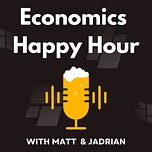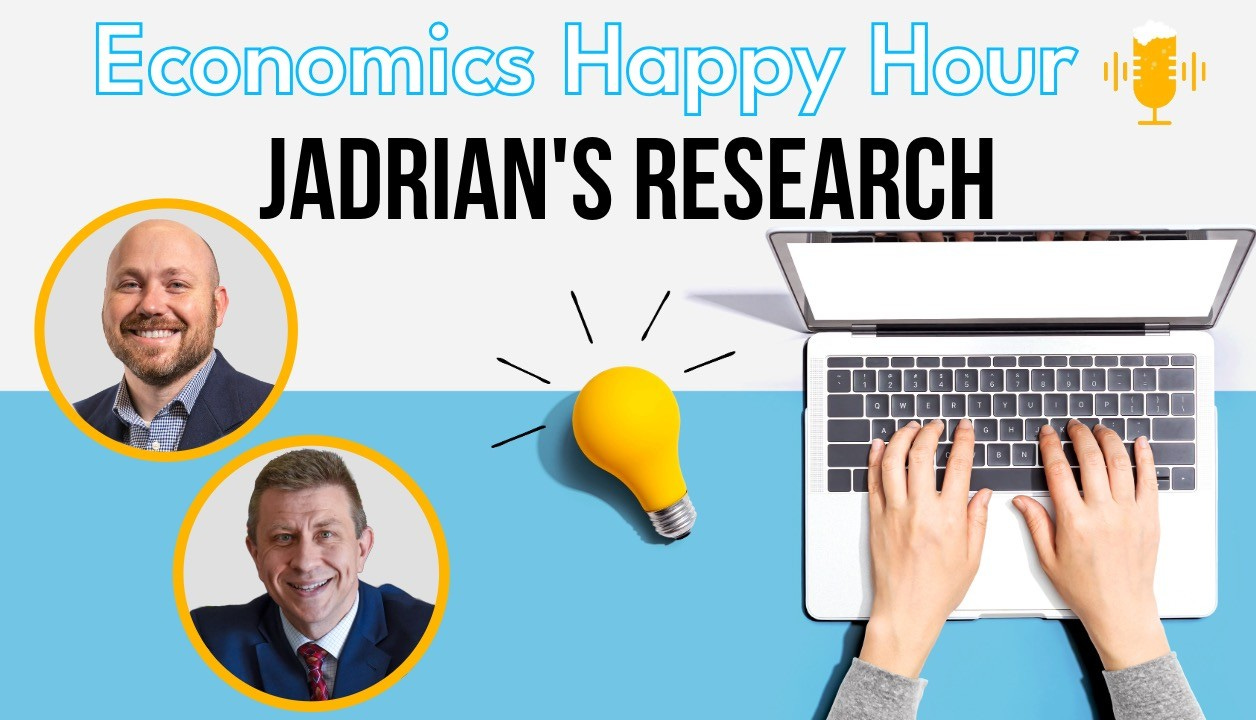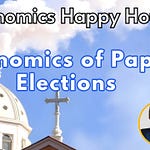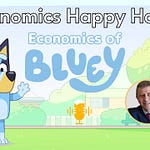Regular listeners will know we love teaching economics, but Matt and Jadrian are also researchers! In this episode of Economics Happy Hour, Matt asks Jadrian about some of his research on sports economics. The two discuss the impact of geographic location on sports team attendance, drawing insights from research on Major League Soccer, and explore the relationship between college sports and binge drinking, analyzing how March Madness affects student alcohol consumption. The results are fascinating as is the field of sports economics in general.
In this episode, we discuss:
How proximity between sports teams affects attendance in Major League Soccer.
The connection between college sports participation and student binge drinking.
Applying behavioral economics (loss aversion) to improve student performance.
Reflections on career paths in economics research and teaching.
And a whole lot more!
Catch up on some old episodes:
You can also listen to us on Google Podcasts, TuneIn Radio, and Apple Podcasts. If one of these is your go-to podcast service, be sure to rate us and subscribe!
Watch this episode on YouTube:
Some show notes:
We recorded this episode in the middle of December so that we could take some time off for winter break, but you’re hearing this (assuming you’re listening when it comes out) in the middle of January. We recorded this just a few minutes after we wrapped up our last episode on goals for 2025, which means the drink options are a little different than normal. When we record back-to-back, we try to have a non-alcoholic drink for the second recording. Jadrian went with an Electro-Lime Cerca de Cerveza from Best Day Brewing and Matt went with Run Wild IPA by Athletic Brewing Company.
This episode week, Matt and Jadrian decided to spend some time talking about some of Jadrian’s past research projects. Even though he is a teaching faculty member, he is still actively involved in research in both the economics of sports and teaching economics. The conversation kicked off with a discussion on the location of new teams in a league, using the expansion of Major League Soccer from 1996 to 2010. Jadrian shares insights from his research on how placing teams closer together can actually boost attendance, countering a common assumption that neighboring sports franchises selling a similar product are substitutes for each other. Why is this? The thought is that multiple teams in an area creates rivalries which boosts excitement by more than the supply capacity, resulting in higher overall. Further, it’s easy to travel to a road game when the opposing team is close to you!
The next paper was a mix of public health and sports economics. Jadrian joined Dusty White and Ben Cowan to examine how the post-season college basketball tournament impacts binge drinking on college campuses. Perhaps not surprisingly, alcohol consumption increases significantly when among students whose school’s basketball team advances in the tournament. Our goal wasn’t to prove that college students drink while watching sports, but rather to explore the broader public health implications of sports on college campuses.
Lastly, we chatted about how behavioral economics concepts could be used in an education setting, specifically how loss aversion—framing grades as something students can lose rather than gain—affects academic performance. Most of the co-authors on this paper were graduate students at Washington State, where the idea was first hatched. The actual results, however, came from classes taught at the University of Nebraska Omaha.
Using loss aversion as the grading policy may have resulted in final scores in the experiment, but it also resulted in lower faculty evaluations. The authors used it as a reminder that there are challenges to balancing learning outcomes with student satisfaction.
As the conversation wrapped up, Jadrian also reflected on the evolution of his research agenda. While he still enjoys using pop culture to make economics engaging, he’s shifting his attention toward work that has a broader impact on the profession. Rather than simply providing another example of how current events can be incorporated into a lesson, he wants to encourage more faculty to critically examine their teaching approaches.
This week’s pop culture references:
Matt shared an interview he recently did with Dan Kuester about The Economics of The Office, focusing on the infamous "Schrute Bucks." In the episode, Dwight introduces his own currency system as an incentive program for employees, but not everyone buys into it. Their conversation dives into why some people accept the new currency while others reject it, providing a fun and relatable way to discuss the fundamental principles of money, trust, and incentives in economics.
Jadrian shared his work on using sports to teach economics, highlighting a recent contribution to a handbook on teaching sports economics edited by Victor Matheson and Aju Fenn. One of his chapters, co-authored with Dusty again, focuses on teaching economics through Moneyball. The film offers a wealth of clips that illustrate key economic concepts, making it a valuable resource for principles courses. From opportunity cost to data-driven decision-making, Moneyball provides engaging examples that help bring economic theories to life in the classroom.























Share this post